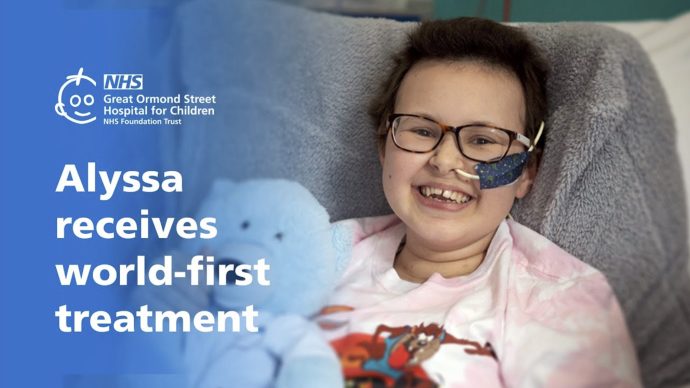#391: Jack Dorsey Is Back In The Saddle At Block, & More
1. Jack Dorsey Is Back In The Saddle At Block
Last Thursday, Block Inc reported[i] third-quarter revenue growth of 24% year-over-year, surprising on the upside of expectations. When former Square CEO Alyssa Henry departed[ii] in October, CEO Jack Dorsey committed to a more active role in the day-to-day operations of Block’s seller ecosystem. During the call, Dorsey made several commitments:
- Reaching the Rule of 40 in 2026 with an initial composition of mid-teens gross profit growth and mid-teens adjusted operating margin in 2026.
- Leveraging generative AI to minimize operating expenses as top-line growth reaccelerates.
- Remaining CEO until Block reaches several milestones, including a “significant return to growth.”
- Introducing a collaborative commerce initiative between Square and Cash App early next year.
Dorsey’s focus on their deeper integration should support Square’s local businesses on Cash App. In August, Block launched Square Go, a consumer-facing app powering a marketplace for local beauty and personal care sellers that, in one interface, enables consumers to book appointments directly. Soon, Dorsey and team will debut Square Go for all 55 million monthly active users (MAUs) on Cash App’s platform.
Dorsey’s integration of Square and Cash App seems to be putting into motion ARK’s digital wallet thesis,[iii] facilitating the growth of closed-loop payment ecosystems across merchants and consumers and disintermediating legacy financial intermediaries.
2. Is The New AI Executive Order Too Broad?

Last week, the Biden Administration issued a broad Executive Order[iv] related to artificial intelligence (AI), effective immediately, with compliance deadlines in the next three to nine months. The order subjects all private large training models to reporting and testing requirements and requires cloud computing and other large datacenter providers to validate and monitor customer identity and behavior. The order also places stringent requirements on AI systems that use biological data.
In our view, the Executive Order is likely to benefit companies like OpenAI and Anthropic that are focused on foundation models and already operate at commercial scale, at the expense of “scrappier” open-source efforts. Anthropic, for example, has highlighted its founding principle of AI alignment and should meet the new compliance requirements seamlessly. Over time, regulatory oversight could bias more profits to the foundation model layer of the AI value chain which, even before the Executive Order, seemed poised to account for a disproportionate share during the next ten years.
Structurally, however, we believe that the world needs more—not less—innovation and that regulating deep neural nets at this early stage could foreclose important technological pathways. The Executive Order seems so broad that almost any model—even a simple Excel spreadsheet—could qualify as “artificial intelligence.” Imagine what the fate of Excel would have been if dozens of federal agencies had oversight over its evolution!
Although The Leviathan is biting now, a world with more intelligent software systems should prove more humane. A world in which fewer entities compete to provide that software—a near-certain byproduct of an overly broad, more onerous regulatory framework—could prove more brittle, perhaps dangerously so.
We would not be surprised if regulatory overreach, not only in AI but also cryptocurrencies, becomes an election year issue during the next three to nine months of compliance with the Executive Order. That said, the Executive Order could disappear if the Administration changes in January 2025.
3. The FDA AdComm Looks Promising For Exa-Cel
Last year, ARK highlighted[v] the story of Alyssa,[vi] a 13-year-old girl in the UK who had been diagnosed with T-Cell Acute Lymphoblastic Leukemia, a type of cancer that affects the immune system. After bucking many rounds of chemotherapy and a bone marrow transplant, Alyssa’s cancer seemed incurable. As her last hope, researchers at the Ormond Street Hospital in the UK used a cytosine base editor (CBE) to make three precise simultaneous edits to a donor’s T-cells—changing genomic transition mutations from C-G to T-A—and reprogramming them to attack Alyssa’s cancer cells while leaving her healthy cells intact. Known as “CAR-T cell” therapy, the procedure[vii] wiped out Alyssa’s cancer: in one month, she was in remission and, in six months, cancer-free.[viii]
 Video Source: Great Ormond Street Hospital and Charity 2023. For informational purposes only and should not be considered investment advice or a recommendation to buy, sell, or hold any particular security.
Video Source: Great Ormond Street Hospital and Charity 2023. For informational purposes only and should not be considered investment advice or a recommendation to buy, sell, or hold any particular security.
Preoccupied by the bear markets ravaging equities and fixed income last year, most investors paid little attention to this life-changing therapy and its potential applications to other cancers. ARK, however, believed that base editing and multiplexing would create better CAR-Ts to treat patients with incurable cancers.
Last week, an Advisory Committee[ix] (AdComm) to the FDA met to discuss the efficacy and safety of Exa-Cel, a gene-editing therapy for patients with severe Sickle Cell Disease (SCD). SCD is an inherited rare disease that inhibits red blood cells—which typically assume sickle shapes—from traveling through blood vessels and providing oxygen throughout the body. Today, SCD is impacting the lives of ~100,000 people in the United States and ~20 million worldwide.
Conceived and manufactured by CRISPR Therapeutics and Vertex Pharmaceuticals, Exa-Cel therapy targets the BC11A gene, which tells red blood cells to stop producing fetal hemoglobin after birth and can trigger its production should the adult hemoglobin falter.
The recent AdComm event suggests that the FDA will approve Exa-Cel during its Prescription Drug User Fee Act (PDUFA) dates for SCD on December 8th, 2023 and for beta-thalassemia (TDT) on March 30, 2024.[xi]
[i] Block. 2023. “Q3 2023 Shareholder Letter.”
[ii] Mullen, C. 2023. “Square CEO to Depart.” Payments Dive.
[iii] ARK Investment Management. 2023. “Big Ideas 2023—Digital Wallets.”
[iv] The White House. 2023. “FACT SHEET: President Biden Issues Executive Order on Safe, Secure, and Trustworthy Artificial Intelligence.”
[v] Urman, A. 2022. “Base Editing Has The Potential To Save Cancer Patients’ Lives.” ARK Disrupt Newsletter. ARK Investment Management LLC.
[vi] Gallagher, J. 2022. “Base Editing: Revolutionary therapy clears girl’s incurable cancer.” BBC News.
[vii] Great Ormond Street Hospital and Charity. 2023. “Alyssa’s story: Base Editing & CAR T-Cell Therapy at Great Ormond Street Hospital.” YouTube.
[viii] ARK Investment Management LLC. 2023. “Gene Therapy Could Cure Cancer with Professor Waseem Qasim.”
[ix] U.S. Food and Drug Administration. 2023. “Advisory Committees.”
[x] National Heart, Blood, and Lung Association. ND. “What Is Sickle Cell Disease?”
[xi] CRISPR Therapeutics. 2023. “CRISPR Therapeutics Announces Completion of FDA Advisory Committee Meeting for Exagamglogene Autotemcel (exa-cel) for Severe Sickle Cell Disease.”


